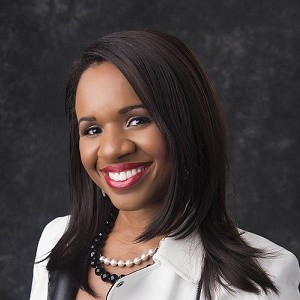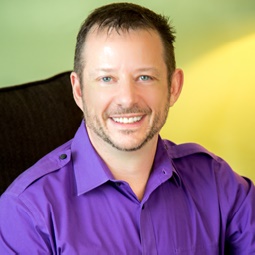2 Ways to Choose a Specialty in Your Psychology Career
If your goal is to become a licensed counselor, therapist, social worker or psychologist, you will more than likely discover that over time, each of these fields has become increasingly diversified. A quick internet search or walk through the yellow pages will prove to even the most staid of skeptics that the majority of career listings of licensed individuals are either categorized under, or indicative of, a specialty area of practice. But how do you arrive at the knowledge of what specialty would be best suited for you? How do you discover and determine where you belong?
An extensive and detailed survey of our Profiled Experts in the fields of counseling, therapy, social work and psychology recently indicated that there are two very basic and easily discernable indicators of what specialty might provide a career which is satisfying, inspiring and successful. Here is what the experts had to say.
Your Family is Your Friend
It may be a universal phenomenon that every child wishes at some point that they were a member of a different family. A young person typically perceives that the familial struggles and vicissitudes they encounter in their early years are isolated cases and present in only their nuclear family. Eventually however, most grow into the awareness that being from a “crazy” or “weird” clan is more common than they had ever imagined. Some even arrive at the conclusion that there is no such thing as “normal.” But for those who do not perceive the big picture at work, they may be plagued into adulthood with a sense of damaged self; a fear of not being worthy, or even fall victim to a prevalent misconception that they cannot break free of their early beginnings to achieve even a modicum of success and well-being.
Almost without exception, our experts held that family of origin issues need not negatively affect even the most ambitious of career choices in the field of psychology. In fact, the experts agreed that family issues are best utilized as the fuel from which a specialty is launched. Profiled Expert Shannon Battle perfectly exemplifies the consensus of our experts that their family histories played a significant role in the establishment of a specialty.
 Despite growing up in a home where there was drug use and brokenness, Shannon Battle was undeterred from achieving her dreams. She graduated from high school at age 16 and immediately began college. A college graduate at 20, Battle went on to found multiple mental health facilities and foster care agencies specializing in the intricate issues surrounding childhood and young adulthood; as well as the complexities of family relationships. She is credited with earning a Master’s Degree in Counseling as well as a Master’s Degree in Sociology. She shared with us some of the specifics of her journey:
Despite growing up in a home where there was drug use and brokenness, Shannon Battle was undeterred from achieving her dreams. She graduated from high school at age 16 and immediately began college. A college graduate at 20, Battle went on to found multiple mental health facilities and foster care agencies specializing in the intricate issues surrounding childhood and young adulthood; as well as the complexities of family relationships. She is credited with earning a Master’s Degree in Counseling as well as a Master’s Degree in Sociology. She shared with us some of the specifics of her journey:
After experiencing a difficult upbringing from both of my parents being crack addicts, I always knew that it was a part of my purpose to help young people. I never knew the details but grew into my profession along the way. I always wanted to work in a career that had meaning. It is a part of my personality to feel accomplished in the work that I do. My career as the owner of a mental health and foster care agency was not by coincidence. This line of work feels like first nature. I am fluid and people that I work with know that their care is genuine. Life happened in a devastating way for me at a very young age, but it only compelled me to move forward.
As you can see, Shannon used what could have been a devastating childhood as the foundation for becoming a Licensed Professional Counselor and Clinical Addictions Specialist. Today she is the CEO of ICAN & Associates, Inc., the CEO of Family Services of America; a television host for the TCT network and a radio commentator at WCCG 104.5FM, a division of Carson Communications, Fayetteville, NC. She is also a former employee of the Department of Defense where she was an Education Counselor.
Personal Experiences are Paramount
While common sense dictates that academic assessment and course of study would naturally determine one’s specialty for a career in psychology; such systematic foresight is actually atypical. Many of our experts shared that their specialties evolved from sources other than their academic choices. Although most felt that they “had” to go in one direction or the other while in school; it was ultimately their personal experiences in the field that were the determinative factors in the establishment of their specialties.
 For almost two decades, Dr. David Barker Hargrove has provided specialized mental health services to the gay, lesbian, bisexual and transgender community with a particular emphasis on working with transgender/transsexual clients. With a BA in psychology from Columbia College, a Master’s Degree (MS) in Clinical Psychology from Troy State University, and a PhD in Counseling Psychology from Barry University; Dr. Hargrove is a classic example of how personal experiences can oft times determine a professional’s specialty. When asked how he chose his specialty this is what he said:
For almost two decades, Dr. David Barker Hargrove has provided specialized mental health services to the gay, lesbian, bisexual and transgender community with a particular emphasis on working with transgender/transsexual clients. With a BA in psychology from Columbia College, a Master’s Degree (MS) in Clinical Psychology from Troy State University, and a PhD in Counseling Psychology from Barry University; Dr. Hargrove is a classic example of how personal experiences can oft times determine a professional’s specialty. When asked how he chose his specialty this is what he said:
My specialization in this area was quite accidental. About 18 years ago, I was working as a volunteer counselor at the local gay and lesbian community center and met someone seeking assistance with gender transition. I knew nothing about the experience of being transgender at the time and since the internet hadn't really been invented yet, I had little to go on in terms of available published literature or information. I literally had to help this client making it up as I went along. We kind of figured it out together as we went. Word of mouth got around I was a person to see about this issue. Once the internet and social media exploded in the middle of the last decade, I quickly became THE person in Central Florida to see about this issue. Now, clients from all over the country and even internationally seek out my practice for information and services. I now also provide transgender-inclusive training and consulting to educational institutions and health care facilities/professionals.
In Summary...
While thinking about what specialty you would like to pursue in your psychology career, it might first be beneficial to recall the age-old adage that happiness can be found in your own backyard. Reflecting upon the dynamics of your family history and the wisdom gleaned over time, could quite possibly transform any frustration with your childhood and youth into a vital launch-pad for your future. Additionally and throughout your career pursuits, keep an ear to the ground for the experiences which may be earmarking your suitability or “vocational calling” towards one particular field of specialization. Shake hands with your history and your present endeavors. According to our experts, your happiness might very well depend upon it.











